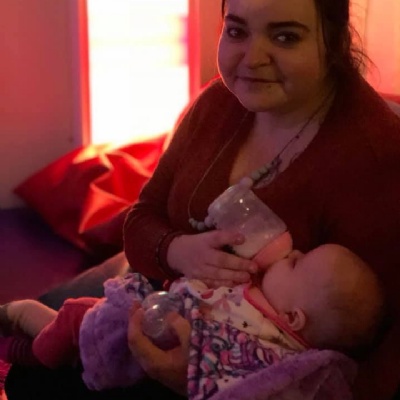How To Look After Our Mental Health During The Coronavirus Crisis!

LOOK AFTER YOUR WELLBEING DURING COVID 19
The Coronavirus (COVID-19) outbreak has drastically changed how we live our lives - there's travel restrictions, many workplaces have closed, and now schools have closed too. Maintaining your mental welbeing can be difficult in the face of such disruption and uncertainty, but there are reasons to be optimistic too.
Jill Wagner, Little Miracles’ Clinical Lead, has some tips for how to stay well at this difficult time.
Stay present
All we can do is take one day at a time. The present moment is a gift - we should live each moment to the best of our ability. Take a moment to notice your feelings of concern, stress and anxiety, be aware of them, acknowledge them, and let them pass.
Activities that engage our mind and make us think a little bit, such as arts and crafts, jigsaw puzzles and colouring are perfect for reducing anxiety levels. When we are anxious our rational mind closes down; engaging with such activities reinstates the rational mind, and reduces anxiety by interrupting our default way of thinking.
Breathing exercises help to reduce the symptoms of anxiety too, a few nice deep breaths get plenty of oxygen into the system. Make sure the breath goes right to the abdomen, take a moment to notice when the breath is at its deepest.
Stay connected
The current advice is to limit face-to-face interactions with other people. Naturally, this means we need to be creative in how we stay connected with each other. Feeling connected to others is so significant to good mental health, and in times like this, it’s easy to become isolated.
Technology is our greatest asset here. Texting is great for conveying information, but where possible, make phone calls, or even better, video calls. Video calls are the closest thing to face-to-face interaction we have - being able to process tone of voice, body language and facial expressions adds a great deal of value to the conversation, mentally.
Many services now use technology to support people remotely. If you’re already in the therapeutic process, I would suggest looking into how you can maintain your treatment by using technology.
Go back to basics
Use this time to get back to basics - play with your children, preferably activities that use the rational mind and encourage conversation.
Your physical and mental health are linked, and you don’t need to go to the gym to enjoy the benefits of exercising. Make time to get out of the house - go outside and enjoy the fresh air, smell the flowers; notice your surroundings. Even a simple walk raises serotonin levels in the brain and lets you take in Vitamin D, boosting your immune system.
Plan
Your brain likes to work logically, you feel confident when you have power or control over a situation. Structuring your thoughts into plans is a good way to remove yourself from the negativity and focus on what you can do. The current restrictions could actually be beneficial - all the more reason to reconnect with old friends, and the extra time at home could give you the time to learn skills, cook healthier meals or read more, for example.
Your brain likes to process information that reinforces what it already knows. While this can be a good thing, in that it’s how we improve our skills and build good habits, it can also cause us to become close-minded or seek out information that causes negative emotions. If you are anxious about the Coronavirus threat, you may want to limit your exposure to the news (outside of Government updates) even if something inside is telling you to look. It’s easy to become obsessive under the guise of wanting to be informed.
This crisis will pass; dealing with it in the here and now, calmly and rationally, will teach our children that we can come through difficult times in a positive way - what better way to teach resilience?
Care for yourself and your surroundings
Your mood is influenced by how you look after yourself and your living environment. Keep on top of doing the things you do to make yourself confident - wash regularly, put your jewellery on, wear perfume. Even if it doesn't seem necessary on the face of it, keeping this routine going will help ground you in the present.
Now that you’re spending more time at home, you may want to do some of those small jobs you’ve been putting off. Clearing your mind of lots of small to-do’s will lift your spirits and keep you motivated; tick them off when they’re done so you can see the progress. It’s good to get your children involved too.
Following our normal morning routines puts us in the correct mindset - if you’re working from home, you feel more productive when you’ve got proper clothes on. If you’re working from home using a computer, try to work in a room other than your bedroom. Mentally, we need to be able to separate our home life from our work life, and having a distinct work area helps us to switch off when we need to.
One last thing - you need to be mindful of how much of the news you are exposing to your children. It’s up to you to decide where the line is; bearing in mind that older children will be able to find truths and mistruths for themselves.
All children need to know the basic facts, as explained in this social story (produced by Roddensvale School):






